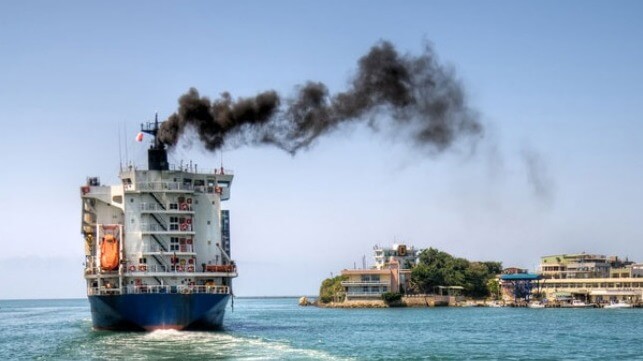EU Completes Process to Enact FuelEU Maritime Legislation

The European Council signed off yesterday, July 25, on the FuelEU maritime initiative, a sweeping package that seeks to dramatically cut emissions from shipping by encouraging the switch to alternative fuels. The approval came two years after the introduction of the broader Fit for 55 package that calls for a net reduction of 55 percent in the EU’s greenhouse gas emissions by 2030 and carbon neutrality by 2050. The legislation is seen as a direct response to the lack of action by the International Maritime Organization and other regulators.
According to the supporters of the legislative initiative, the main aim is to increase demand for and use of renewable and low-carbon fuels. They assert that the legislation provides clarity to ship operators and will ensure smooth operations for shipping while providing for the fuel transition. The legislation was designed to put shipping on the trajectory of the EU’s climate targets and they assert should play a fundamental role in delivering on Europe’s climate promises.
“The new law will provide legal certainty for ship operators and fuel producers and help kick-start the large-scale production of sustainable maritime fuels, thus substantially delivering on our climate targets at European and global level,” said Raquel Sánchez Jiménez, Spanish Minister of Transport, Mobility and Urban Agenda.
The key provisions of the law are a stepping down in the intensity of carbon emissions starting at just two percent in 2025 but accelerating to 80 percent by 2050. Financial incentives and penalties are built into the program as well as a pooling mechanism for fleets to meet the requirements.
The legislation calls for using the monies raised from the fees and tariffs placed on carbon to support maritime decarbonization and supporting the development and adoption of renewable fuels of non-biological origin. Part of the effort seeks to balance the use of alternative fuels within the shipping industry versus the strong need for the fuels to address road transportation. Separate parts of the broader legislation also deal with aviation fuels.
Political agreement had been reached in March on the scope of the legislation. With the approval of the EU Council, the new regulation goes into effect 20 days after publication. The key elements of the legislation apply to shipping as of January 1, 2025. Two articles, pertaining to setting up a measurement and reporting system however go into effect starting on August 31, 2024. Ships and their owners need to submit a plan for monitoring and reporting the amount, type, and emission factor of energy used on board.
Starting in 2030 for member ports and in 2035 for a broader range of ports, passenger ships and container vessels will be required to use shore power.
The EU points to the importance of the legislation highlighting that nearly three-quarters of its external trade is moved aboard ships and nearly a third of its internal trade. Shipping they believe represents as much as four percent of Europe’s total carbon emissions.

that matters most
Get the latest maritime news delivered to your inbox daily.
The legislation applies to ships above 5,000 gross tons and excludes warships, naval auxiliaries, vessels involved in fishing activities, and government ships used for non-commercial purposes. This represents approximately 55 percent of all ships calling in EU ports and collectively they are responsible for approximately 90 percent of the CO2 emissions from the maritime sector. The legislation also calls for reviewing in the future to extend participation to ships below 5,000 gross tons.
Environmentalists, while recognizing Fuel EU Maritime as a key initiative, however continue to criticize the legislation, calling for more and a faster timeline. In a final lobbying effort, the influential group Transport & Environment (T&E) released a new study modeling expected shipping behavior. They continue to call for faster and steeper cuts as well as stronger financial penalties to prevent the shipping industry from simply building in the costs of non-compliance into their operations.
